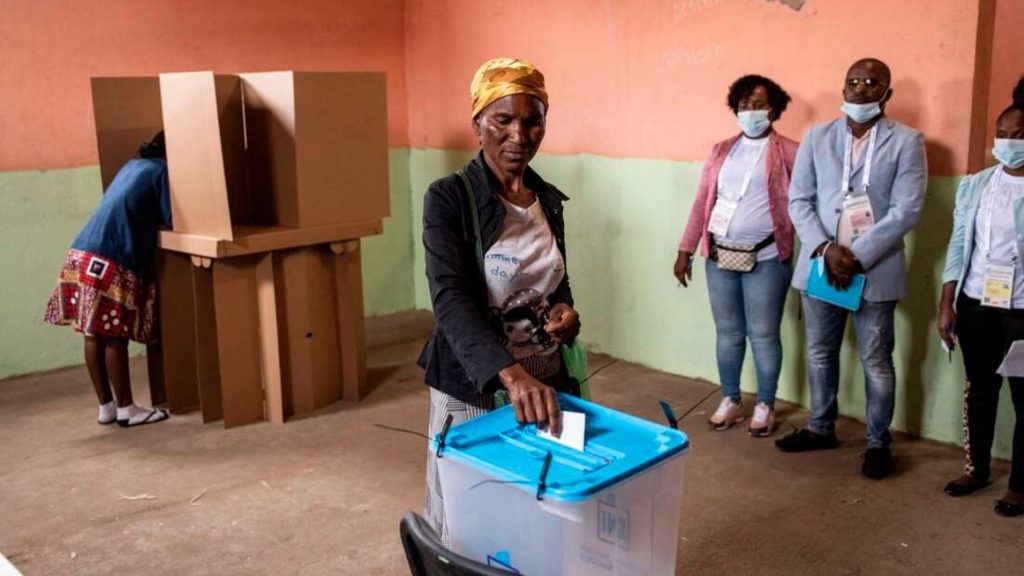Angola is set to hold a highly competitive election on Wednesday, with incumbent President João Lourenço facing a strong challenge from opposition leader Adalberto Costa Júnior. This election comes at a critical time as the country struggles with a weak economy, high living costs, widespread poverty worsened by the Covid-19 pandemic, a severe drought in the south, and the recent death of former president José Eduardo dos Santos.
The ruling party, the People’s Movement for the Liberation of Angola (MPLA), has been in power for over 40 years but now faces its toughest challenge since the nation’s first multiparty elections in 1992.
Tight Race While eight political parties are competing, the real contest is between the MPLA and its long-time rival, the National Union for the Total Independence of Angola (Unita), which was once a rebel movement. Recent opinion polls indicate that the MPLA’s support, which stood at 61% in the 2017 elections, may shrink, while Unita, now in a coalition with two other parties, is expected to gain more votes.
However, analysts suggest that despite Unita’s growing popularity, it might not be enough to unseat Lourenço, who is likely to secure a second term. Eric Humphery-Smith, an analyst from Verisk Maplecroft, stated that although the vote will be closer than ever, the MPLA is still favored to win due to the advantages of being the ruling party.
Calls for Change Despite the MPLA’s control over the electoral process and public media, Costa Júnior has urged his supporters not to fear change. “Don’t be afraid of an alternative,” he said at his final rally in Luanda. “There is no democracy with just one party in power.”
Costa Júnior, 60, has gained popularity among Angola’s youth, a growing and significant voting group. He has promised to tackle poverty and create jobs if elected.
Lourenço, a former general educated in the Soviet Union, had promised major reforms when he was first elected five years ago. At a recent rally, he highlighted his government’s efforts to restructure the economy in an attempt to win over voters.
Life in Angola Despite Angola being Africa’s second-largest oil producer, many of the country’s 33 million people continue to struggle with daily hardships. “We’ve been voting for years, and nothing changes,” said Gabriel, a 37-year-old street vendor. “Everything is expensive, and we are barely getting by.”
The oil wealth largely benefited former president dos Santos, who died last month in Spain, along with his family and inner circle. His remains were returned to Angola shortly before the election, adding a somber note to the campaign.
Dos Santos’s Legacy Analysts caution that attempts by the ruling party to use dos Santos’s funeral for political gain may not succeed, especially as opinions on his legacy are divided, particularly among younger voters.
Around 14.7 million Angolans are registered to vote at 13,200 polling stations across the country. For the first time, Angolans living abroad will also be able to cast their votes. Polling stations will open at 7 a.m. and close after 11 hours, with results expected in a few days. However, if past elections are any indication, the results could be contested, potentially prolonging the process for weeks.























